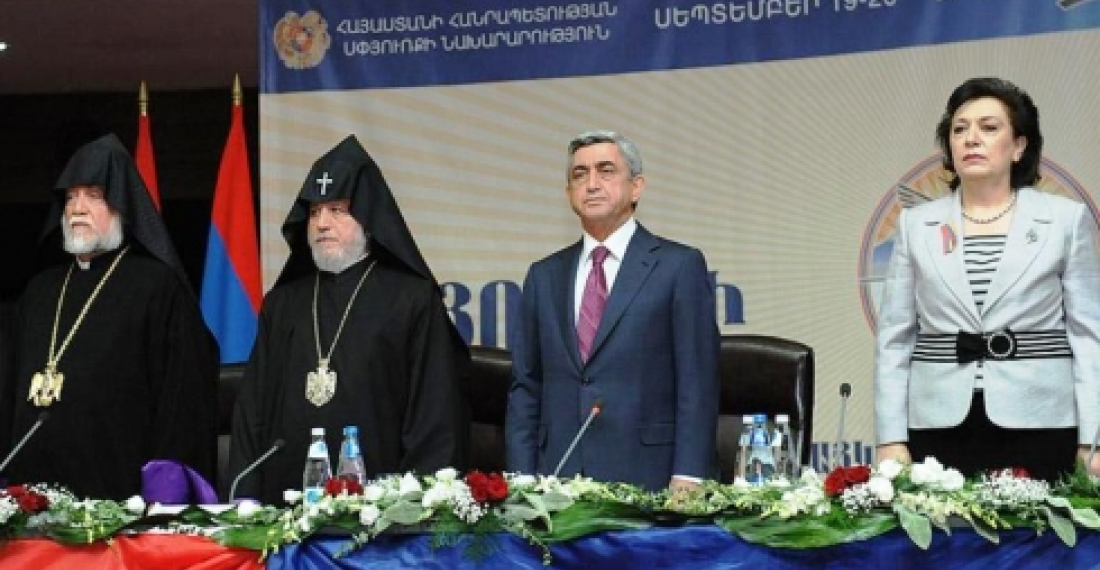More than five hundred representatives of Armenian communities throughout the world are meeting in Yerevan for a forum that will also mark the 20th anniversary of the independence of Armenia after the collapse of the Soviet Union.
The gathering was addressed by Armenian President Serz Sargsyan and the President of the self declared Nagorno-Karabakh Republic Bako Sahakyan. Catholicos of All Armenians Karekin II, and Catholicos of Cilicia Aram I blessed the start of the proceedings.
In his speech to the Forum Bako Sahakyan said that "The Homeland-Diaspora unity is among the cornerstones of the existence and strengthening the independent Armenian statehood as well as preserving national identity of our compatriots living in different parts of the globe. Due to this very unity we have been able to overcome numerous ordeals and embark on the path of stable development\".
Theforum will continue today and tomorrow
source: Commonspace.eu newsroom with agency reports
Photo: President Serzh Sargsyan at the official opening of the diaspora Forum in Yerevan (picture courtesy of the Press Service of the president of Armenia).







